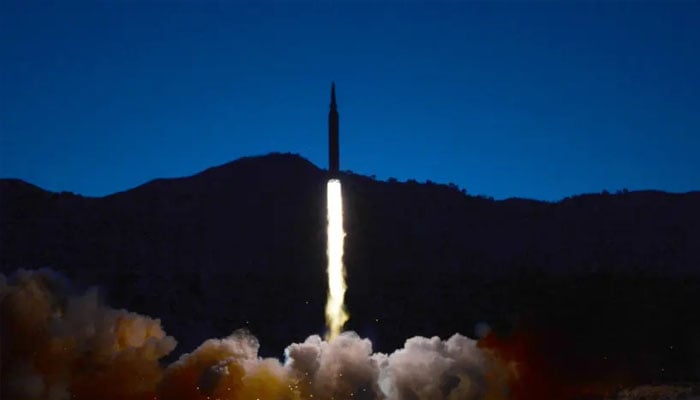
SEOUL: North Korea fired at least one suspected ballistic missile toward the sea to the east of the Korean peninsula on Saturday, militaries in the region said, an apparent test just days before the South’s presidential election.
South Korea’s Joint Chiefs of Staff said it detected the launch of one suspected ballistic missile on Saturday, while the office of Japan’s Prime Minister also said it was a suspected ballistic missile.
The launch would be the ninth this year. The last was on Feb. 27 when North Korea said it tested systems for a reconnaissance satellite.
The South Korean military said Saturday’s launch came from a location near Sunan, where Pyongyang’s international airport is located. The airport has been the site of previous tests, including the Feb. 27 launch.
South Korea’s National Security Council will convene an emergency meeting, the presidential Blue House said.
The launch underscores the challenges facing whoever wins Wednesday’s presidential election in South Korea.
With denuclearisation talks stalled, North Korea conducted a record number of missile launches in January. It appears to be preparing to launch a spy satellite in the near future, and has suggested it could resume testing of nuclear weapons or its longest range intercontinental ballistic missiles (ICBMs) for the first time since 2017.
Analysts say North Korea could use the upcoming presidential transition in South Korea or a big national holiday on April 15 to test fire a major new missile or other weapon.
“The timing of North Korea’s missile testing may seem odd to us, given the global focus on Ukraine,” Jean Lee, a fellow at the Washington-based Wilson Center, said on Twitter. “But it makes perfect sense in North Korea, where scientists are focused on perfect new weapons for Kim to show off at a big military parade in mid-April.”
North Korea’s ballistic missile launches are banned by United Nations Security Council resolutions, which have imposed sanctions on the country over its weapons programmes.
The United States has said it is open to talks without preconditions, but Pyongyang says talks are only possible after the United States and allies drop hostile policies.
On Friday, the US -based 38 North project, which monitors North Korea, said the country’s main nuclear facility is in full swing, producing fuel for potential nuclear weapons and an expansion of its nuclear production facilities.






